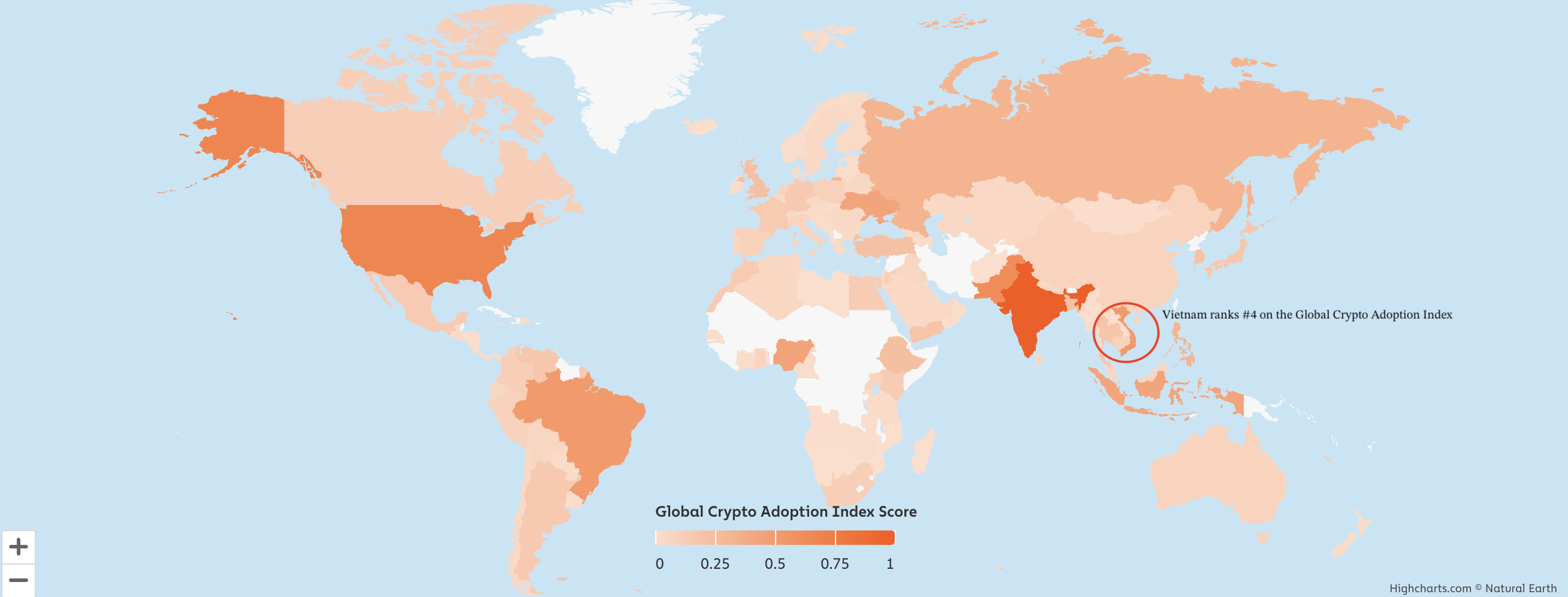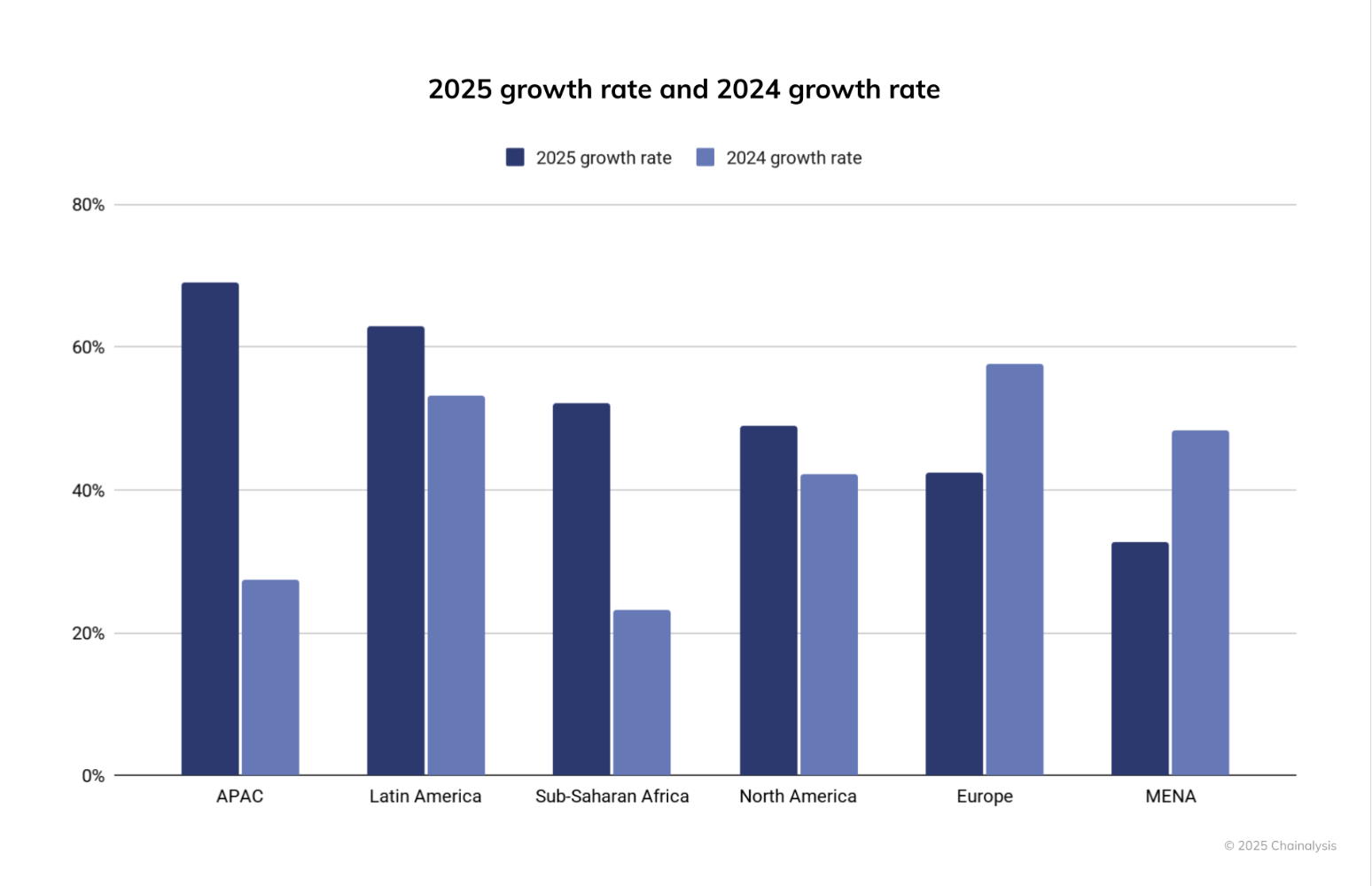
Vietnam is currently one of the foremost nations in the Asia-Pacific (APAC) area regarding cryptocurrency adoption, ranking fourth globally, as per Chainalysis.
The State Bank of Vietnam predicts a 20% increase in credit growth for 2025, which may facilitate the inflow of liquidity into global cryptocurrency markets as adoption expands within the region. Pham Thanh Ha, the deputy governor of the central bank, stated that interest rates should be reduced further to foster economic growth and address the uncertainties arising from tariffs imposed by the U.S., according to Reuters.
In June, Vietnam’s government legalized cryptocurrencies as part of a wider technology regulatory framework, designating them as either virtual assets or crypto assets, including Bitcoin (BTC) and Ether (ETH). However, a prohibition was placed on the issuance of on-chain fiat-backed assets, such as stablecoins and securities, under the new regulations alongside an ongoing five-year sandbox pilot program initiated in September.
 The global ranking of each country in the Chainalysis Crypto Adoption Index. Source: Chainalysis
The global ranking of each country in the Chainalysis Crypto Adoption Index. Source: Chainalysis
Vietnam is positioned to emerge as a regional hub for cryptocurrency in Southeast Asia, bolstered by government initiatives focused on innovative technologies, a youthful demographic, and robust cryptocurrency adoption, as indicated in Chainalysis’ 2025 Global Crypto Adoption Index.
The Asia-Pacific Region Leads in Crypto Adoption
According to Chainalysis, the Asia-Pacific region is experiencing the fastest growth in cryptocurrency adoption, with nine of the top 20 countries in its Global Crypto Adoption Index from this area. APAC saw a 69% year-on-year rise in cryptocurrency value received, with transaction volumes increasing from $1.4 trillion to over $2.3 trillion in 2025, driven predominantly by increases in adoption in India, Pakistan, and Vietnam.
 APAC leads all other regions in crypto adoption. Source: Chainalysis
APAC leads all other regions in crypto adoption. Source: Chainalysis
In July, Vietnam’s government launched a national blockchain database to facilitate identification and public records, forming the regulated base for engagement with its digital economy and related blockchain platforms. Named NDAChain, this layer-1 network comprises 49 nodes under a public-private governance model.
NDAChain is designed to enhance the security of sensitive personal data typically stored on centralized servers by dispersing data across a semi-decentralized architecture. This system integrates aspects of both decentralized and permissioned frameworks, as elaborated by Nguyen Huy, the head of technology for Vietnam’s National Data Association (NDA), overseeing NDAChain.
*Related: Why we Bitcoin — Vietnam closes 86M bank accounts that fail biometrics *Magazine: Finally blast into space with Justin Sun, Vietnam’s new national blockchain: Asia Express


